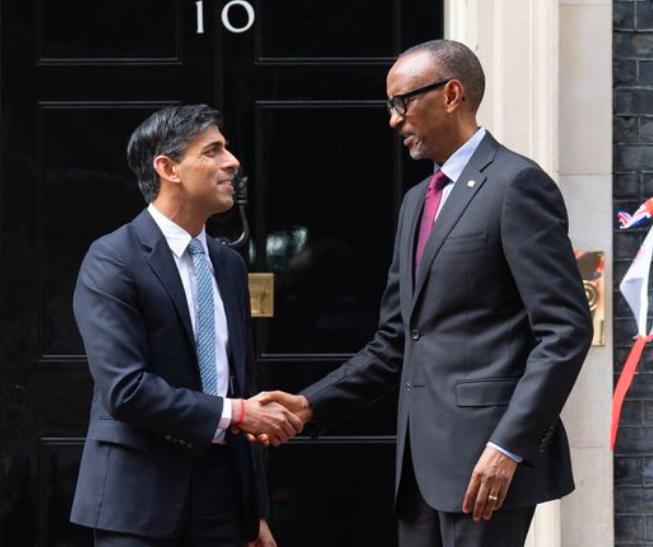The United Kingdom government’s persistence in pursuing the controversial plan to send asylum seekers to Rwanda reached a disturbing turn with the introduction of the “Safety of Rwanda (Asylum and Immigration) Bill.” Authored in response to the Supreme Court’s November 15 ruling, which deemed Rwanda an unsafe third country for asylum seekers, this bill reflects the UK government’s disconnect from reality and distortion of facts.
The bill’s Article 2.1, declaring the Republic of Rwanda a conclusively safe country, raises concerns among victims of the Rwandan government’s repression. Despite the Supreme Court highlighting threats to Rwandans in the UK and the troubling human rights situation in Rwanda, the UK government seems determined to legislate away these concerns.
The Supreme Court’s ruling emphasized issues such as extrajudicial killings, deaths in custody, enforced disappearances, torture, and restrictions on media and political freedoms in Rwanda. Instead of addressing these serious concerns, the UK government has chosen to undermine evidence, disregard human rights reports, and ignore its own assessments.
In a desperate attempt to bypass the Supreme Court’s judgment, the UK and Rwanda signed a binding treaty that purportedly prevents Rwanda from sending asylum seekers back to their home countries. However, this treaty and the introduced bill fail to acknowledge Rwanda’s well-established track record of repression and its blatant disregard for international human rights obligations.
In Rwanda, critics regularly face unfair trials, ill-treatment, and torture. Numerous opposition members, journalists, and commentators languish in jail for expressing opinions critical of the government. The death of a threatened journalist in suspicious circumstances earlier this year underscores the gravity of the situation.
Recent interviews with Rwandans in the UK reveal that some live in fear of surveillance and potential harm to their relatives in Rwanda. The psychological insecurity stemming from such concerns is as debilitating as physical security issues. Despite this, the UK government seems determined to proceed with a deal that not only lacks compliance with the UK’s human rights act but also jeopardizes the safety and well-being of asylum seekers.
As the UK stands at a dangerous crossroads, with the home secretary acknowledging the bill’s non-compliance with human rights standards, it is crucial for the UK parliament to reject this legislation. The government should abandon its Rwanda deal, prioritizing human rights and international obligations over a flawed and potentially harmful policy.
































































